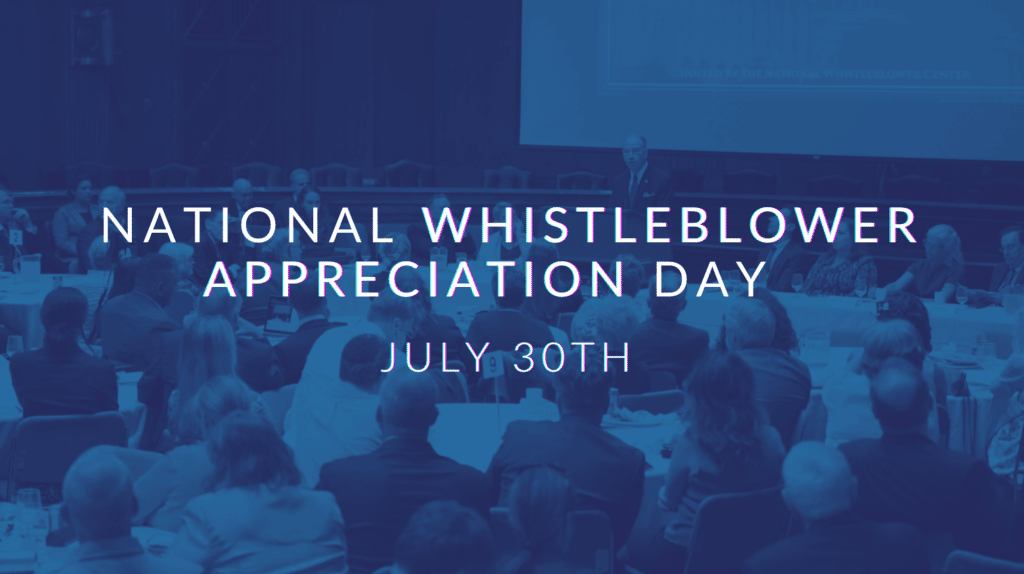Momentum continues to build around the National Whistleblower Day campaign after the Senate unanimously passed Resolution 298, designating July 30, 2023 “National Whistleblower Appreciation Day.” The resolution encourages each federal agency to recognize the day by sharing the stories of the agency’s own whistleblowers and informing their employees about their right to blow the whistle.
The bipartisan resolution was introduced by Senators Chuck Grassley (R-IA) and Ron Wyden (D-OR) who co-founded and co-chair the Senate Whistleblower Protection Caucus. Grassley has been a long-time advocate for whistleblowers via legislation including the historic Anti-Money Laundering Whistleblower Improvement Act.
“NWC is grateful to the courageous legislators who have celebrated whistleblowers for the 10th year in a row,” Siri Nelson, Executive Director of the National Whistleblower Center (NWC), said. “Champions like Senators Grassley and Wyden help to safeguard our democracy and have shown whistleblowers that they have allies in Congress. These critical resolutions help whistleblowers continue to speak up, and help whistleblower advocates to continue fighting for greater whistleblower protections.”
NWC hopes that the resolution puts pressure on the Biden administration to issue an Executive Order requiring federal agencies to permanently recognize National Whistleblower Day on an annual basis.
“The Senate has set the table – respect and honor the contributions of whistleblowers have made since the founding of the Republic,” Kohn, Kohn & Colapinto’s Stephen M. Kohn, leading whistleblower attorney and author, said. “It’s time for the White House to join in.”
The origins of the day trace back to July 30, 1778, when Congress unanimously passed the first whistleblower legislation in the United States, which stated that “it is the duty of all persons in the service of the United States, as well as all other the inhabitants thereof, to give the earliest information to Congress or other proper authority of any misconduct, frauds or misdemeanors committed by any officers or persons in the service of these states, which may come to their knowledge.’’
The law was passed in wake of the retaliation faced by the 10 sailors and marines who blew the whistle on the commander of the Continental Navy.
Kohn, who uncovered the history of that first whistleblower law, explains that National Whistleblower Day is about more than celebrating the anniversary of that law; it is about recognizing that today, the need for whistleblower protections is more alive than ever. Like the servicemen who blew the whistle back in 1778, many of today’s whistleblowers face retaliation despite their brave and important efforts to hold our nation accountable to democratic laws.
“Celebrating National Whistleblower Day helps change the culture that permits whistleblowers to be disrespected, fired and shunned,” Kohn said.
“National Whistleblower Day acknowledges the tremendous contributions made by persons willing to risk their jobs and reputations to serve the public interest,” Kohn explained. “History was made when the Founders of the United States passed America’s first whistleblower law on July 30, 1778. Today’s leaders must act in this tradition and pass urgently needed whistleblower reforms.”
Whistleblowers have been the quiet defenders of democracy even before the Constitution was ratified. Since, their importance in protecting human rights, national security, democracy, fair trade, and the environment has only increased. Whistleblower advocates continue to urge the White House to make the day permanent once and for all, eliminating the need for an annual reintroduction of this resolution.
